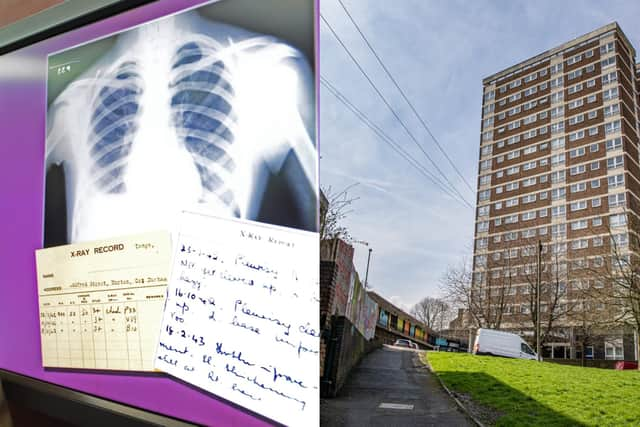Armley: Health teams target Leeds suburb hit by rise in tuberculosis cases
and live on Freeview channel 276
A six-month project was launched in Armley to help people get treatment for TB after an increases in cases in the community.
The city’s annual Health Protection Board Report said the team worked with white British men over 40 who had a history of substance misuse and homelessness.
Advertisement
Hide AdAdvertisement
Hide AdFunding was secured for a community development worker based at healthcare provider Touchstone as part of the project.


The report said: “Armley had been identified due to local data indicating a rise in TB cases in the area.
“The worker developed partnerships between clinical and community projects, groups and organisations who are in direct contact with these men.”
Symptoms of TB include a persistent cough lasting more than three weeks which brings up bloody phlegm.
Advertisement
Hide AdAdvertisement
Hide AdOther warning signs include weight loss, night sweats, a high temperature, fatigue, loss of appetite and swellings in the neck.
The infection is usually spread through the air by coughing and sneezing. Most cases are curable with a six-month course of antibiotics.
The report said a TB clinic was re-established at Leeds Student Medical Practice as part of work to tackle the disease.
Ukrainian families with children aged under five were being invited to TB screening.
Advertisement
Hide AdAdvertisement
Hide AdThe UK has one of the highest incidence rates among western European countries for TB, which is preventable but disproportionately affects vulnerable populations.
The report said: “Certain groups, such as migrants, ethnic minority groups, and those with social risk factors such as homelessness or a history of imprisonment are more affected.”
The report said recent data showed the overall TB incidence rate for Leeds was stable.
But further awareness-raising work is planned in parts of the city including Armley and Harehills, where communities are known to be at the highest risk.
Advertisement
Hide AdAdvertisement
Hide AdThe report said: “There is likely to be an increased demand for the acute and community TB services due to higher levels of migration in the coming years, particularly from countries with high TB incidence.”
The annual report will be presented to Leeds City Council’s executive board on Wednesday (April 17).